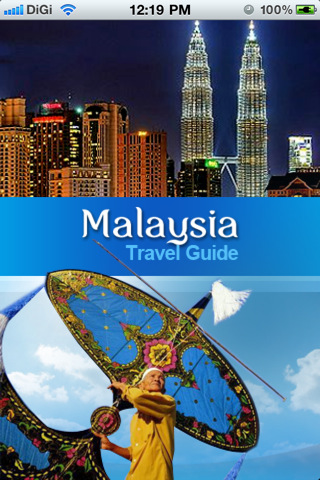 I’ve contributed to collaborative data tasks like Usenet, Everything2 and Wikipedia so long as I’ve been hanging around on the Internet, but Wikitravel was finally the one which managed to synthesize most of my pursuits together: I get to read about strange locations, travel to them myself, take pretty photos and then write about it for all of the world to see! And the comprehensiveness and immediacy of Wikitravel just blows away any conventional guidebooks.
I’ve contributed to collaborative data tasks like Usenet, Everything2 and Wikipedia so long as I’ve been hanging around on the Internet, but Wikitravel was finally the one which managed to synthesize most of my pursuits together: I get to read about strange locations, travel to them myself, take pretty photos and then write about it for all of the world to see! And the comprehensiveness and immediacy of Wikitravel just blows away any conventional guidebooks.
It seems inconceivable to me at this time, sufficiently so that I’m slightly embarrassed to kind this, but we hadn’t actually examined, at all, our conversion path with real, dwell customers. We had simply blithely assumed that X{ce1899895764f10cbc98cac0c42d3c0e4dc1c96b46f6d6edaeb20b87af6f0bd0} of holiday makers to Wikitravel pages with advertisements would click on on to the Wikitravel Press web site, and that Y{ce1899895764f10cbc98cac0c42d3c0e4dc1c96b46f6d6edaeb20b87af6f0bd0} of those would go on to buy the guide. Guess what? People browsing Wikitravel were, by and huge, not enthusiastic about buying it as books; and of those that did make it to the Press and clicked on the purchase” links, one other giant proportion were turned off by having to create new accounts on Lulu, type in bank card particulars and addresses, after which pay hefty shipping charges, particularly if outdoors the US. Doing a quiet public beta before launch would have alerted us to this no less than half a year earlier.
The choice of using the Creative Commons Attribution-ShareAlike license comes out of this concentration on paper output (see the page Mav talked about for details). The GFDL has some hefty necessities for redistribution, and we needed to lighten these. So, we went with the CC by-sa, as a result of it is about as shut as you will get to the copyleft spirit of the GFDL. The ultimate step for many wiki journey guides is the build-up of content material: it goes with out saying that a guide written by users needs customers to write down. But the beauty of the web is the limitless quantity of area. The hyperlink on Wikibooks, I consider, happened because somebody there thought it would be a good suggestion to do a journey guide, and another person pointed to the existing Wikitravel, and then another person determined it was associated. If someone thinks it’s not related, heck, take out the link.
So we were caught in our little Amazon bubble, and the one approach forward was to produce more titles, which meant discovering extra editors to create and preserve them. Alas, our process required a trifecta of uncommon traits: a mastery of Wiki markup, a willingness to work unpaid for a long interval to initially prep the guide for publication, and the tolerance to take care of unpredictable royalties once the e book did hit the virtual shelves. There had been no life like technical options to the first, with MediaWiki WYSIWYG remaining a pipe dream despite years of effort by the Foundation, and we were unable to pay advances as a result of we couldn’t precisely forecast e book gross sales. In the top, solely nine titles made it during, with fairly a couple of left lying on the slicing desk in various states of completion.
Because we could not. Wikitravel Press’s contract with Internet Brands was only for printed merchandise, not digital merchandise. We’d asked for digital rights originally, but needed to give manner, and our new makes an attempt so as to add them to the contract had been tersely rebuffed. Since Wikitravel content material is open to all, we may have tried our luck without the brand or the hyperlinks from the website, but then there would have been little to distinguish us from anybody else repackaging it, and we’d probably be getting our books pulled from the Kindle Store on as simply one other personal label rights” writer right about now.